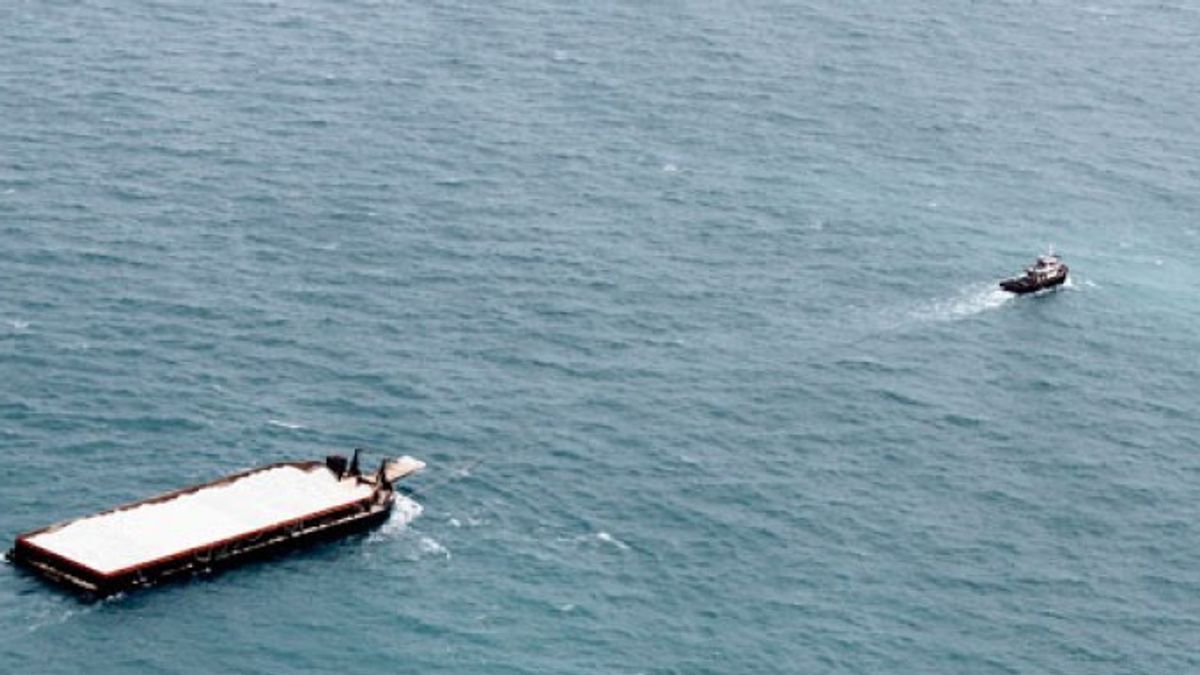JAKARTA - The government is asked to review Government Regulation (PP) Number 26 of 2023 concerning Management of sedimentation Results in the Sea. The regulation reopens the sea sand export ban which has been closed for 20 years.
"I hope that the Government will not recklessly issue policies. So, I ask that this PP need to be corrected, reviewed, even if it needs to be canceled," said Member of Commission VI DPR RI, Luluk Nur Hamidah, Thursday, June 7.
Luluk admits that the preparation of PP No. 26 of 2023 is indeed the domain of the Government. However, according to him, Indonesia needs to learn from past policies regarding sea sand exports that have drawn a lot of protests.
Please note, since 2003 Indonesia has consistently banned sea sand exports with environmental considerations. At that time, Megawati Soekarnoputri approved the termination of sea sand exports through Kepmenperin No. 117 of 2003.
The prohibition aims to stop environmental damage, prevent the escape of maritime boundaries, and stop the damage to small islands. This prohibition then creates problems, including various illegal sand delivery actions.
Even so, Luluk encouraged the Government to reinforce the prohibition, not to make a rule in which to reopen sea sand export permits.
"The step to open sea sand exports from sea sedimentation is feared to be an effort to legalize to bring sea sand abroad," said the legislator from the Central Java IV electoral district.
Luluk again asked the Government to revoke the regulation (PP) Number 26 of 2023. Because the rules that reopen sea sand export permits are considered to have more harm than benefits.
"We used to fail to prevent leakage of marine sand smuggling involving officers and rulers. And there is no guarantee we will not repeat if this opportunity is opened," said Luluk.
The woman who is also a member of the Legislation Body (Baleg) of the DPR RI encourages the Government to consider the long-term impact of dredging sea sand. Luluk reminded that dredging of sea sand can damage environmental sustainability.
"Don't just look at the benefits in the short term for some aspects but result in greater losses for more aspects for the long term," he said.
On the other hand, sea sand exports are considered to also result in reduced environmental resources. This policy also opens the door to exploitation of marine sand which directly threatens the existence of coastal ecosystems and small islands in Indonesia.
"In my opinion, the Government seems to repeat policies that have been banned because it endangers ecology for the sake of economic purposes alone. Even though our marine ecological condition is not doing well, marked by serious damage to mangroves in a number of areas and abrasion that continues," said Luluk.
The DPR's board (AKD) equipment in charge of trade affairs ensures that it will oversee the policy of dredging the sea sand. Luluk firmly rejected the policy and hoped that the Government would hear input from various parties, especially with the many criticisms related to the regulation.
"Listen to the voices of the public and experts, who are clearly worried about this PP No. 26/2023," he said.
"Seapasir merupakan isu krusial mencakup eksecology hingga kedaulatan negara. Saya rasa kebijakan yang dibuat Pemerintah tidak urgent dengan pembukanya peluang ekspor sand laut," sambung Luluk mengakhiri.
The English, Chinese, Japanese, Arabic, and French versions are automatically generated by the AI. So there may still be inaccuracies in translating, please always see Indonesian as our main language. (system supported by DigitalSiber.id)













